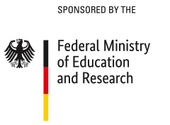Adaptive and personalized AI systems in healthcare and well-being rely on information about users and usage situations to provide the best possible support. But, in situations of illness, pain, or when faced with decisions regarding therapeutic risks, patients often experience cognitive impairments resulting in missing, incomplete, biased data. These challenges can hinder their ability to make informed decisions, understand complex medical information, or even communicate their symptoms and concerns effectively. Recognizing the profound impact of these cognitive barriers, it becomes imperative for healthcare systems and professionals to employ adaptive and personalized AI tools. Such tools can bridge the cognitive gap, ensuring that patients receive the best possible care tailored to their unique needs and circumstances.
The FEDWELL research project intends to investigate Artificial Mental Model (AMM) in adaptive AI systems to support patients for making informed decisions under risk conditions. This project focusses on two primary use cases: post-knee/hip surgery rehabilitation support and therapy decision support for patients with compromised decision-making abilities (e.g., multiple sclerosis (MS)). Recognizing the cognitive impairments of patients in these use cases, we will design, develop, and evaluate AMM-powered AI systems tailored for both personal and professional applications, ensuring respectful treatment tailored to the user’s behavior and meeting unique needs and challenges faced by the involved patients.
Through a combination of structured surveys, contextual data collection, and advanced machine learning techniques, FEDWELL aims to extract and understand patient behavior, attitudes, and intentions in AMMs. A unique negotiation mechanism, integrating Reinforcement Learning and cooperative and non-cooperative game theory, will be established between the AMM and an adaptive system, ensuring decisions aligned with the patient's interests. By project completion, FEDWELL aspires to present a robust AMM capable of representing patients beliefs, knowledge, expectations, and understandings in adaptive AI-systems guiding patients towards treatment options that resonate with their personal preferences and behavioral patterns, thereby revolutionizing patient-centric care in healthcare settings.


